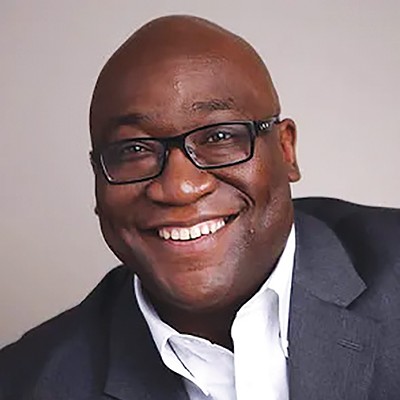I am happy, but not surprised, to report that the sky remains above my hometown, which I visited recently and where marijuana has been legal since voters overwhelmingly ended pot prohibition in 2012.
Tacoma isn’t like Springfield, and Washington isn’t like Illinois. For one thing, the Evergreen State pays its bills on time and has neither a pension crisis nor an income tax. For another, those silly West Coast radicals years ago put faith in the free market, selling cheap licenses to most anyone who wanted to grow or sell pot while installing some of the highest taxes in the land. The money has rolled in, more than anyone imagined – during the most recent fiscal year, excise taxes and licensing fees brought in $360 million, with another $94 million in sales taxes paid at shops that sell pot and equipment for consuming same. This in a state that is bordered by a nation to the north and a state just south where weed is legal.
Here in Illinois, where pot taxes will be among the lowest in the nation and no neighboring state has legalized weed, the legislature and governor largely have rejected capitalism when it comes to weed and are hoping for $500 million in annual revenue. They’ve engineered a market, strictly limiting the number of licenses while charging six-figure fees to the well-heeled who want to sell or grow weed. For no good reason, folks who are in the medical pot game have been granted potentially lucrative inside tracks to get the first licenses while enjoying limited competition for the foreseeable future. We will see how that goes come Jan. 1, when pot will become legal and lines at licensed shops, some folks predict, will stretch for blocks, presuming there is sufficient product to sell.
Meanwhile, back in anything-goes Washington, I was impressed during my recent visit by the paucity of pot shops. A few years ago, it seemed, there was a store on most every corner in Tacoma and environs, but no more. According to weedmaps.com, there are 27 dispensaries in the city and surrounding suburbs. Nearly 900,000 people live in the area. Without peeled eyes, you would never notice. There’s been a lot of stuff written about emergency room visits in Colorado linked to weed – largely, it seems, neophytes eating more edibles than they should but suffering no lasting harm – but virtually nothing about Washington, which is home to such corporations as Microsoft and Starbucks that do not test employees for drugs. Maybe it’s just me, but folks also seemed to drive better than here.
The surest sign that pot is here to stay came when I spotted a flier at my father’s house advertising a medical marijuana tour that included lunch and a 10 percent discount for ladies. My father will be 86 on Sunday.
Instantly, I suspected dope pushers at the local senior center, and, sure enough, I was right. It turns out that the Tacoma parks department, which purports to care about old people, organizes annual tours of pot shops aimed at folks like my dad, who could just as easily could be your grandfather.
When she isn’t taking seniors to pot parlors, Bonnie Elliser, Fifty And Better recreation specialist for Metro Parks Tacoma, told me that she sets up bingo games as well as classes on jewelry making and painting and how to negotiate Medicare. The annual marijuana tour, she says, was a case of being asked by seniors she sees on a regular basis. “They didn’t want to go on their own,” Elliser tells me. “They just felt uncomfortable. There are a few that do have medical marijuana cards. The majority just want to get rid of their aches and pains.” Unfortunately, it hasn’t worked for my dad, who remains a poster child for proper Oxycodone use.
Dutifully, Elliser sought permission from her supervisor before starting up the tours. Pot’s legal, so the green light came, she says, and there’s been no controversy. “We haven’t had any problems with it,” she says. Which is what happens when you allow responsible adults to behave like responsible adults.
DOWN AT THE COURTHOUSE, the Illinois Supreme Court on Tuesday heard Wexford Health Sources, which provides health care in state prisons, argue why it shouldn’t have to turn over a settlement agreement reached in the case of Alfonso Franco, who died in 2012 from colon cancer that went undiagnosed at Taylorville Correctional Center until he was incontinent and in diapers. It’s a big deal for Wexford, which holds a $1.36 billion contract to care for inmates, and for Illinois Times, which sued to get the settlement document and will demand others if we’re successful. We think settlements are a matter of public record, and an appellate court agreed. Wexford thinks settlements memorialize business decisions and are none of the public’s business. Neither the state nor the company has done a good job of providing health care in prisons, according to a federal court monitor who last year found that the company has failed to hire qualified doctors and that poor medical care has caused preventable deaths.
We should know just how many, and settlements might help answer that question for folks who see death as something more than business.






















